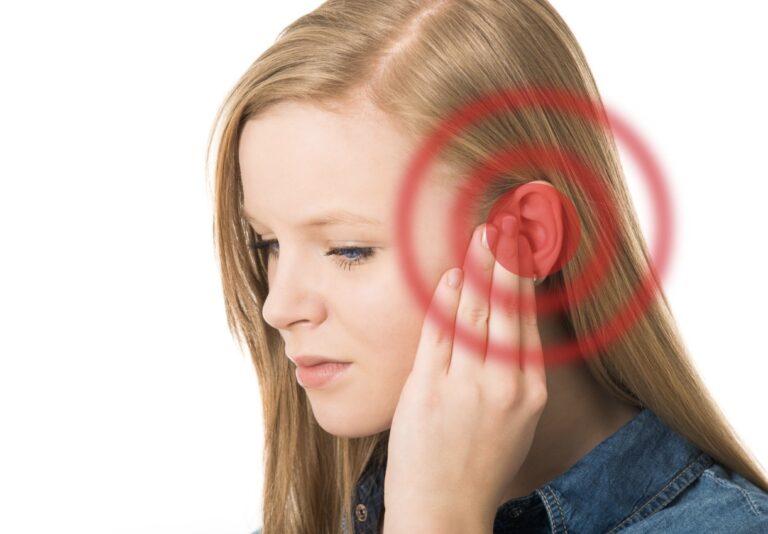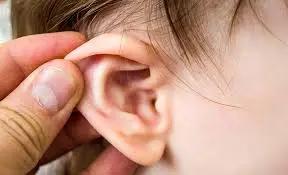
How Tinnitus is Diagnosed
Tinnitus is usually diagnosed based on your symptoms. The process of having tinnitus diagnosed often involves a detailed evaluation by your doctor, who may refer you to a specialist and order tests to identify possible underlying causes. However, your doctor will also try to determine whether there’s an underlying cause that can be treated. In some cases, no specific cause can be identified.

To help find the cause, your doctor will likely:
- Review your medical history
- Examine your ears, head, and neck
- Examine your ear canal for blockages, earwax, or fluid that could contribute to symptoms
- Check for an ear infection as a possible cause of tinnitus
When describing your symptoms, your doctor may ask you to explain the tinnitus sounds you experience, including their pitch, loudness, and quality. Providing details about your tinnitus sounds helps guide the evaluation. An Ear-Nose-Throat doctor (ENT specialist) may also be involved in diagnosing and managing your condition.
The sound you hear can vary, such as clicking, pulsing, ringing, buzzing, or hissing.
There are different types of tinnitus. Subjective tinnitus is the most common type, where only you can hear the phantom noises. These tinnitus sounds have no external source and are unique to each person. In rare cases, objective tinnitus occurs, which can sometimes be heard by a doctor during examination, often as rhythmic or pulsatile sounds. These rare cases are usually linked to specific physical causes and may be more identifiable and treatable. The tinnitus sound can differ greatly between individuals, ranging from ringing to roaring or squealing, and may affect concentration and hearing.
Ringing in the Ears
Tinnitus, often described as ringing in the ears, is a widespread condition that affects millions of people. It involves hearing a ringing sound or other noises when no external sound is present. This perceived sound can be constant or come and go, and it may occur in one or both ears. Tinnitus is not a disease itself but a symptom that can result from various causes, including age-related hearing loss, exposure to loud noises, or other ear-related issues. Many people experience tinnitus after being exposed to loud environments, such as concerts or construction sites, while others may notice it as they get older and their hearing changes. Understanding what triggers ringing in the ears is the first step toward finding relief and managing the condition effectively.
Causes of Tinnitus
There are several possible causes of tinnitus, and identifying the underlying cause is key to effective treatment. One of the most common causes is exposure to loud noises, such as loud music, machinery, or sudden, extremely loud noise, which can damage the delicate hair cells in the inner ear. Age-related hearing loss, known as presbycusis, is another frequent cause, as the inner ear naturally deteriorates over time. Certain medical conditions, including Meniere’s disease, otosclerosis (abnormal bone growth in the middle ear), and acoustic neuromas (benign tumors on the hearing nerves), can also lead to tinnitus. In some cases, high blood pressure or injuries to the head and neck may be the underlying cause of tinnitus. Because tinnitus can be linked to a wide range of health issues, it’s important to consult a healthcare professional to determine the specific cause and develop a tailored treatment plan.
Risk Factors and Preventing Tinnitus
Some people are more likely to develop tinnitus due to specific risk factors. Regular exposure to loud noises, whether from work environments like construction sites, frequent attendance at loud concerts, or using headphones at high volumes, increases the risk of developing tinnitus. Age is another significant factor, as the risk of hearing loss and tinnitus rises as we get older. Other risk factors include a history of head or neck injuries, frequent ear infections, and certain medical conditions such as Meniere’s disease. To help prevent tinnitus, it’s important to protect your hearing by wearing earplugs or earmuffs in noisy settings, keeping the volume down on personal audio devices, and avoiding prolonged exposure to loud environments. Scheduling regular hearing tests can also help catch early signs of hearing loss and reduce the risk of developing tinnitus.
The Importance of Early Diagnosis
Getting an early diagnosis for tinnitus is essential for managing symptoms and preventing complications. If left untreated, tinnitus can interfere with sleep, increase anxiety or depression, and negatively impact your quality of life. A healthcare professional will typically start with a review of your medical history, followed by a physical examination and hearing tests to assess your symptoms. Imaging tests, such as MRI or CT scans, may be used to rule out more serious underlying conditions. Early intervention can make a significant difference, as treatment options like sound therapy and cognitive behavioral therapy can help manage symptoms and improve daily functioning. Addressing tinnitus early can also help prevent it from becoming a chronic or more severe problem.
Tests for Tinnitus
Hearing Test (Audiological Exam) for Hearing Loss
You’ll sit in a soundproof room with earphones that play sounds into each ear. You’ll signal when you hear them, measuring your ability to hear sounds at different pitches and volumes. Your results will be compared to age-based norms. This helps determine if your hearing falls within the range of normal hearing. This test works by sending sound waves into your ear, which are converted by the inner ear into electrical signals. These electrical signals travel through the auditory nerve to the brain. The brain processes sound by interpreting these signals, and disruptions in this process can contribute to tinnitus. This helps detect possible hearing-related causes.
Movement Tests
Your doctor may ask you to move your eyes, jaw, neck, arms, or legs. If the tinnitus changes, it may point to an underlying disorder.
Imaging Tests
CT or MRI scans may be used to check for structural issues, especially if a tumor or other brain/ear condition is suspected.
Lab Tests
Blood tests may check for anemia, thyroid disorders, heart conditions, or vitamin deficiencies.
Be sure to describe the sound of your tinnitus to your doctor, as it can offer clues to its cause:
- Clicking – May indicate muscle spasms in or near the ear.
- Pulsing, rushing, or humming – Often linked to blood vessel issues like high blood pressure.
- Low-pitched ringing – Could be related to earwax blockages, Meniere’s disease, or stiff middle ear bones (otosclerosis).
- High-pitched ringing – Commonly caused by noise exposure, hearing loss, medications, or conditions like acoustic neuroma.
Working with a Healthcare Professional
Discussing your symptoms with a healthcare professional is a crucial first step in managing tinnitus effectively. An experienced provider can help identify the underlying cause of tinnitus and recommend a personalized treatment plan. This may involve referrals to specialists such as an ear, nose, and throat (ENT) doctor or an audiologist for further evaluation. Treatment options might include sound therapy, such as tinnitus retraining therapy, cognitive behavioral therapy to address emotional responses, and medication to manage associated symptoms. Your healthcare professional can also advise on lifestyle changes, including stress management, sleep hygiene, and the use of hearing protection to prevent further damage. By working closely with a healthcare provider, you can develop a comprehensive approach to manage tinnitus and improve your overall quality of life.
Treatment Options
Tinnitus treatment depends on its cause. Various methods are used to treat tinnitus symptoms, including sound therapy, counseling, and hearing aids. If an underlying condition is found, treating it may help relieve symptoms. Possible treatments include:
- Earwax removal – Can reduce or eliminate symptoms caused by blockage.
- Treating blood vessel conditions – May involve medication or surgery.
- Hearing aids – Can help if tinnitus is related to hearing loss.
- Medication adjustments – If a drug is the cause, changing or stopping it may help. Some drugs, including cancer drugs, are known for causing tinnitus.
While there is no definitive way to cure tinnitus, many treatments focus on managing symptoms and improving quality of life. Certain medications and health conditions can cause tinnitus or worsen tinnitus, so identifying these factors is important for effective management. Magnetic or electrical stimulation is also being researched as a potential treatment for tinnitus.
Noise Suppression
Tinnitus often can’t be cured, but devices can make the noise less noticeable:
- White noise machine – A white noise machine produces static or natural sounds like rain or waves to help mask tinnitus. Using pleasant sounds, such as soft music or nature sounds, can also help make tinnitus less noticeable and improve relaxation or sleep. Devices with pillow speakers or household appliances like fans can be helpful, especially at night.
- Masking Devices – Worn like a hearing aid, these devices emit low-level white noise to reduce the perception of tinnitus. A hearing aid can also help with tinnitus, especially for those with hearing loss, by amplifying external sounds and making the ringing less prominent.
Counseling, Behavioral Therapy, and Tinnitus Retraining Therapy
Therapies that help you cope with tinnitus can improve your quality of life:
- Tinnitus Retraining Therapy (TRT) – Combines sound masking with professional counseling. Over time, it can help reduce your awareness and distress.
- Cognitive Behavioral Therapy (CBT) – Helps reframe negative thoughts and develop coping strategies. CBT may also reduce anxiety or depression often linked with tinnitus. It can be done individually, in groups, or online.
Medications
There’s no medication that cures tinnitus, but drugs may help manage symptoms or associated conditions like anxiety and depression. These drugs include:
Antidepressants
Antidepressants can help reduce anxiety and improve sleep, which may ease the perception of tinnitus.
- SSRIs (Selective Serotonin Reuptake Inhibitors)
Examples: Sertraline (Zoloft), Paroxetine (Paxil), Escitalopram (Lexapro)
Commonly used for both anxiety and depression.
Note: Rarely, SSRIs may worsen tinnitus in some individuals; regular monitoring is recommended. - TCAs (Tricyclic Antidepressants)
Examples: Nortriptyline (Pamelor), Amitriptyline
Sometimes used for more severe tinnitus-related distress.
Can be sedating, which may help with sleep, but have a higher risk of side effects than SSRIs.
Anti-Anxiety Medications (Anxiolytics)
- Benzodiazepines
Examples: Clonazepam (Klonopin), Diazepam (Valium), Alprazolam (Xanax)
May offer short-term relief for intense anxiety or difficulty sleeping due to tinnitus.
Caution: These drugs are potentially addictive, not suitable for long-term use, and can cause withdrawal symptoms.
Emerging Treatments
Researchers are exploring brain stimulation techniques, such as magnetic or electrical stimulation, including:
- Transcranial Magnetic Stimulation (TMS)
- Deep Brain Stimulation
These approaches aim to reduce tinnitus symptoms by altering brain activity.
NowPatient has taken all reasonable steps to ensure that all material is factually accurate, complete, and current. However, the knowledge and experience of a qualified healthcare professional should always be sought after instead of using the information on this page. Before taking any drug, you should always speak to your doctor or another qualified healthcare provider.
The information provided here about medications is subject to change and is not meant to include all uses, precautions, warnings, directions, drug interactions, allergic reactions, or negative effects. The absence of warnings or other information for a particular medication does not imply that the medication or medication combination is appropriate for all patients or for all possible purposes.









